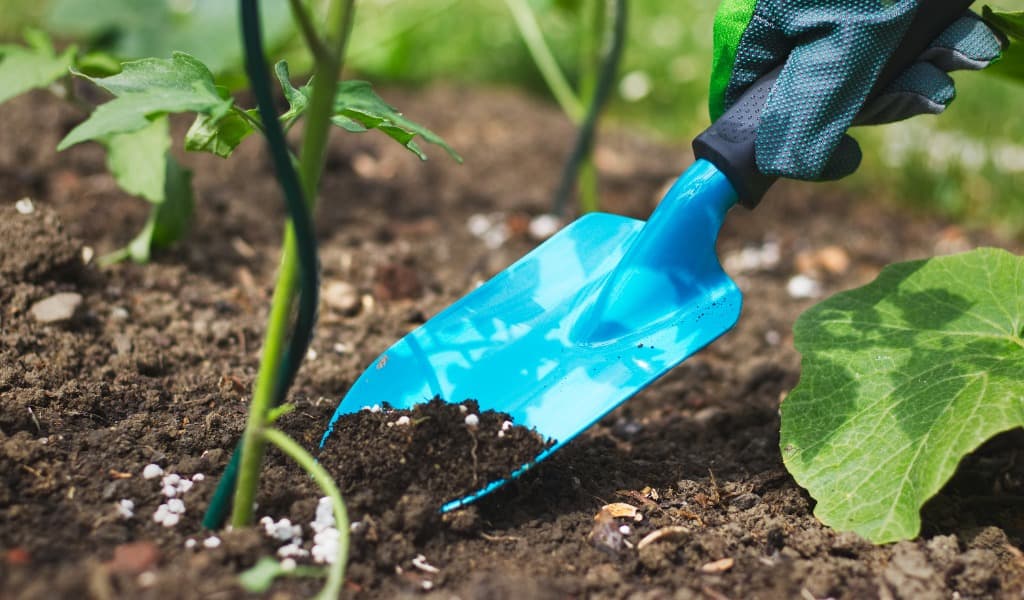Healthy plants need three things to survive and thrive: sunlight, water and nutrients, which often come in the form of fertilizer.
Ensuring plants get enough nutrients is an essential part of maintaining a garden. All plants need three macronutrients — nitrogen, phosphorous and potassium — along with a host of other micronutrients to keep growing strong stems, full leaves and bright blooms. Fertilizer delivers these essential nutrients to plants and can make up for a deficiency in the soil.
How Often Do You Need to Fertilize Your Garden?
Perhaps unsurprisingly, the answer isn’t quite cut and dry. Instead, it depends on the type of plant. Plants like peonies, mums, roses and hydrangeas, as well many dense vegetables, are known as “heavy feeders” because they pull a lot of nutrients from the soil in order to grow quickly and bloom frequently. On the other end of the spectrum, “light feeders” like leafy greens, trees, shrubs and coneflower, require much fewer minerals from the soil. It’s best to fertilize heavy feeders about once a month, while light feeders may only need fresh fertilizer a few times a year.
What’s in the Soil?
Before applying fertilizer, conduct a soil test to check the pH level of the soil and levels of the three primary macronutrients. This allows you to determine whether the soil is acidic, neutral or alkaline which, along with the nutrient levels, helps you to identify the type of fertilizer needed to keep your plants healthy. By providing the level of nutrients present in the soil, you can determine how much of each macronutrient you need to keep the soil rich and balanced. This is an important step because over-fertilizing plants can be as harmful as under-fertilizing them, sometimes causing damage to plants.
Do you want to see your garden thrive this spring? The team at Prewett, Read & Associates is here to help keep your plants fed so your garden stays healthy. Give us a call today to ensure your plants are getting the right nutrients to stay blooming bright.


